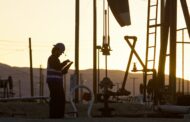As exciting as transitioning to an electrical energy-based society is, as it holds immense potential for sustainability and environmental benefits, it’s not without its challenges. Here are some key hurdles to consider:
Technical Challenges: Intermittency and Storage: Renewable energy sources like solar and wind are variable, depending on weather conditions. This creates challenges in grid stability and requires efficient energy storage solutions, which are still under development.
Is hydrogen a future fuel that in abundance, as new reserves of “white hydrogen” are discovered. Will create tehcnoligal challenges for building this potential market.
Grid Modernization: Integrating renewable sources into existing grids requires significant upgrades to handle fluctuations and accommodate distributed generation. This can be expensive and time-consuming.
Interoperability is the buzzword we are using for making sure everything connects with everything. We have moved form a well defined “step down” grid to a more complex “step everywhere” grid.
Raw Material Availability and Supply Chain Issues: The production of solar panels, wind turbines, and batteries relies on specific raw materials that could face potential supply chain constraints. The technology development required to use more abundant and available raw material is underway but still not fully capable of replacing rare earth materials like Lithium for example.
Why are transformers in such short supply with ever expanding lead times? Yes, demand has caused an existing supply issue but there is another issue for OEM’s and that is supply of some materials and component parts and the supply of skilled and even unskilled labor.
But supply chain issue are not related to transformer supply but to almost everything required for the modern grid. As an example, Printed Circuit Boards (PCBs) are required throughout the modern grid as we move from an electromechanical system to a solid state one and they are also in short supply.
Economic Challenges: High upfront costs: While long-term savings are significant, renewable energy technologies often have higher upfront costs compared to traditional fossil fuels, deterring investment. Currently governments are covering much of this shortfall but that support is surely going to dwindle if not dry up completely.
Job displacement and labor shortages: The shift away from fossil fuels could lead to job losses in certain sectors, requiring targeted policies for workforce retraining and transition. But right now we have almost every job function from electrician to electrical engineer is in short supply, with estimates of the need growing while the boomer retirement phenomenon continues.
Energy access and affordability: Ensuring equitable access to affordable electricity remains a challenge, especially as governmental investment to support this transition begins to end and the cost of operating this new system falls on consumers. Low income and third world/developing countries will bear a disproportionate cost of operating the modern grids.
Conclusion: Great gain will require some measure of pain and we need to be realistic yet bold as we forge ahead with grid modernization.




![Tesla reviewer breaks down the price of owning an EV versus a gas car in the US: 'Real costs after one year [of] ownership'](https://energynews.today/wp-content/uploads/2023/06/yahoo_news_en-US_s_f_p_168x21_news-90x21.png)





